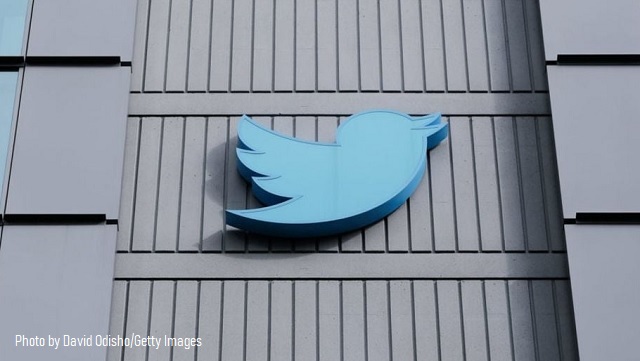Twitter Had Secret ‘Blacklists’ That Suppressed Stanford Doctor, Top Conservatives, Docs Show

- Twitter maintained secret “blacklists” that included several prominent conservative voices and a Stanford professor of health policy, limiting the spread of their content, according to journalist Bari Weiss.
- While Twitter kept a record of some of this activity, the most sensitive, politically charged actions were typically kept off-the-books by high-ranking members of Twitter’s staff, Weiss reported.
- “Think about visibility filtering as being a way for us to suppress what people see to different levels,” a senior Twitter employee told Weiss. “It’s a very powerful tool.”
Twitter kept secret “blacklists” that included a doctor at Stanford and several prominent conservative voices that suppressed their ability to be found or heard on the social media platform, according to journalist Bari Weiss, founder and editor of The Free Press and former Wall Street Journal and New York Times columnist, who launched the second chapter in Elon Musk’s so-called “Twitter Files” Thursday evening.
Weiss tweeted what appeared to be a photo of Stanford University’s Dr. Jay Bhattacharya, a professor of health policy, with his account being prominently marked as being under a “Trends Blacklist.” Bhattacharya was secretly blacklisted because he “argued that Covid lockdowns would harm children,” and was thus unable to trend on the platform, according to Weiss.
In addition to Bhattacharya, Twitter placed Turning Point USA founder Charlie Kirk under a “Do Not Amplify” notice, while right wing talk radio personality Dan Bongino, who has appeared on Alex Jones’ InfoWars, was placed under a “Search Blacklist,” according to Weiss. The practice of limiting the access or reach of users’ content, commonly referred to as “shadow banning,” is something that Twitter has denied doing in the past, and is referred to internally as “Visibility Filtering” or “VF,” Weiss reported.
“Think about visibility filtering as being a way for us to suppress what people see to different levels,” a senior Twitter employee reportedly told Weiss. “It’s a very powerful tool.”
THREAD: THE TWITTER FILES PART TWO.
TWITTER’S SECRET BLACKLISTS.
— Bari Weiss (@bariweiss) December 9, 2022
Twitter operated two teams that managed visibility filtering, with the lower-level team — known as the “Strategic Response Team — Global Escalation Team” — handling roughly 200 routine and recorded cases per day, Weiss reported. However, a second group, known as “Site Integrity Policy, Policy Escalation Support,” handled high-profile, politically sensitive accounts, making no record of their decisions, one Twitter employee told Weiss.
The second group included former Head of Legal, Policy and Trust Vijaya Gadde, former Global Head of Trust and Safety Yoel Roth, as well as then-CEOs Jack Dorsey and Parag Agrawal, Weiss reported.
“Think high follower account, controversial,” the twitter employee told Weiss. The employee noted that when this group was involved, “there would be no ticket or anything.”
The company’s internal slack messages showed that Roth was interested in using “deamplification” and “remediations” in order to slow the spread of viral content that the team considered to be misinformation, according to Weiss.
“We got [CEO Jack Dorsey] on board with implementing this for civic integrity in the near term, but we’re going to need to make a more robust case to get this into our repertoire of policy remediations – especially for other policy domains,” said Roth in a message to the company’s Health, Misinformation, Privacy and Identity research team, according to Weiss. “So I’d love research’s POV on that.”
After Twitter suffered a steep decline in advertising revenue following Musk’s takeover in late October, the company’s new CEO committed to fighting hateful content by reducing its visibility on the platform, in a Nov. 9 call with advertisers.
Weiss’ thread arrived six days after Matt Taibbi, contributing editor at Rolling Stone, launched “Part One” of Musk’s Twitter Files, focusing primarily on the mechanisms by which various high-level executives at twitter coordinated to suppress the spread of a New York Post article detailing a laptop owned by Hunter Biden.
Musk had initially tweeted on Dec. 2 that the second installment of the files would be released on Dec. 3, a date that he then pushed back “another day or so,” before going silent on the issue.
This is a developing story and will be updated.
AUTHOR
JOHN HUGH DEMASTRI
Contributor.
RELATED ARTICLE: Musk Releases Details On How Twitter Censored The Hunter Biden Laptop Story
EDITORS NOTE: This Daily Caller column is republished with permission. ©All rights reserved. All content created by the Daily Caller News Foundation, an independent and nonpartisan newswire service, is available without charge to any legitimate news publisher that can provide a large audience. All republished articles must include our logo, our reporter’s byline and their DCNF affiliation. For any questions about our guidelines or partnering with us, please contact licensing@dailycallernewsfoundation.org.

